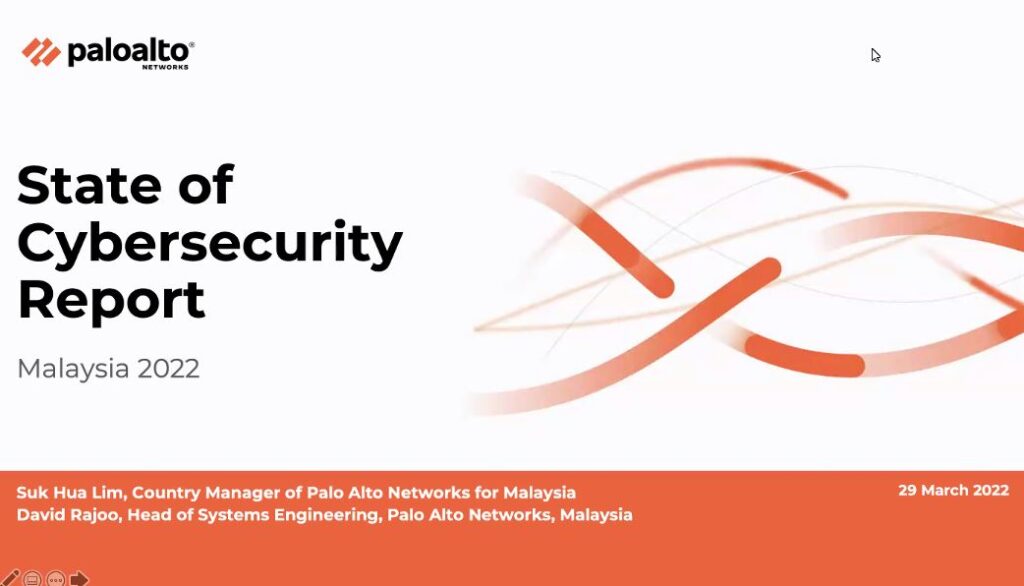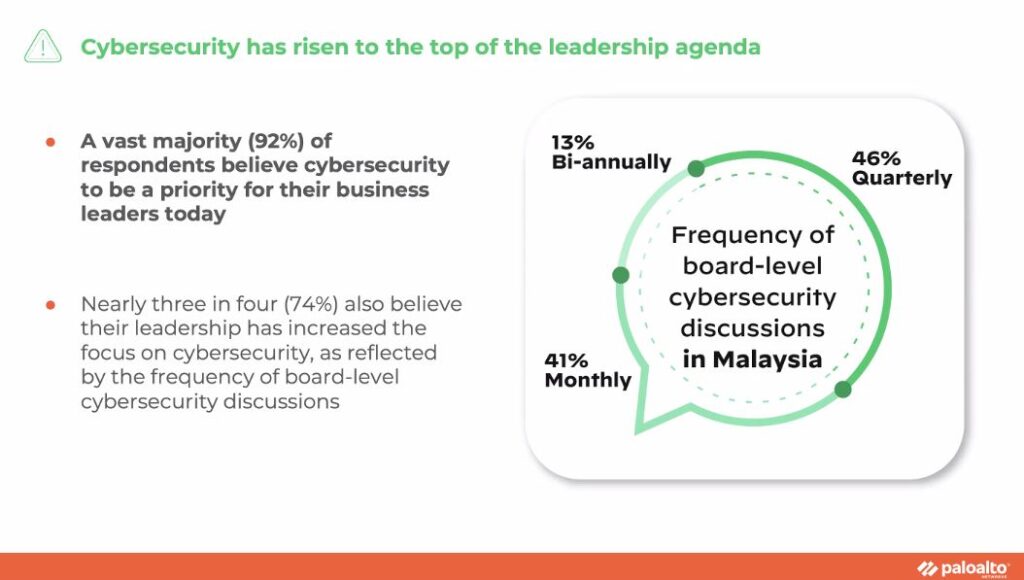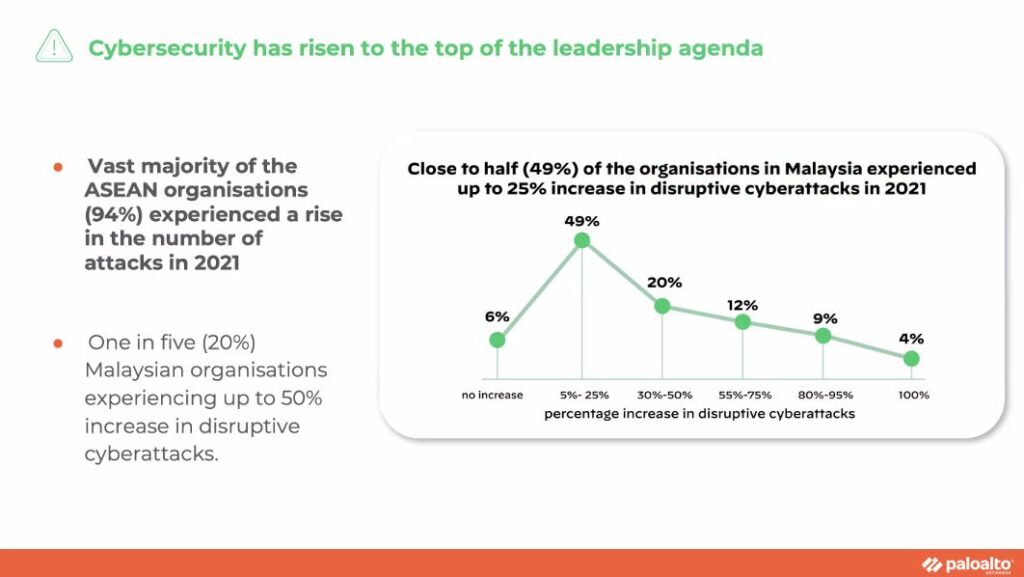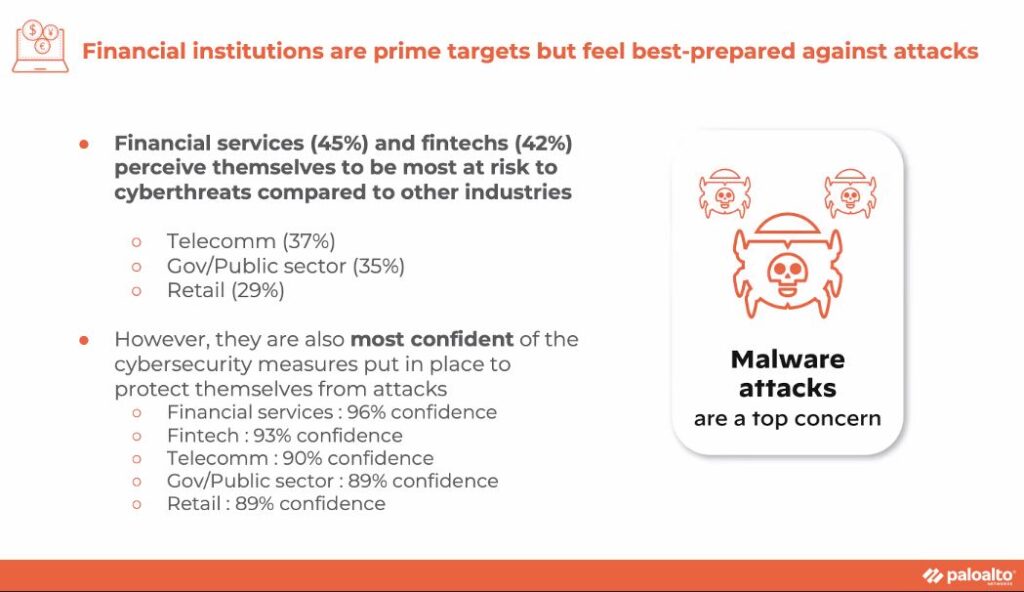
Palo Alto survey reveals that cybersecurity is top priority of business leaders in ASEAN
The recently concluded Palo Alto State of Cybersecurity in ASEAN study that surveyed business organisations in the Southeast Asia region yielded some interesting findings with 92% of businesses believing that cybersecurity should be one of the top priorities for business leaders.
What is the Palo Alto State of Cybersecurity in ASEAN study
The Palo Alto State of Cybersecurity in ASEAN study was conducted amongst 500 respondents in Singapore, Malaysia, Indonesia, Thailand and the Philippines for five key industries – Financial services, Government/Public sector, Telecommunications, Retail and Fintech. In addition to the emphasis on cybersecurity, nearly 3 in 4 businesses (74%) believe that leadership has increased the focus on cybersecurity.

On that note, 96% of organisations reported maintaining an in-house IT team for managing cyber risks while over two-thirds (68%) reported plans to increase cybersecurity budgets in 2022 that are driven by the adoption of next-generation security capabilities (48%), the need to tackle existing cybersecurity gaps (46%) and the need to optimise operations (44%).
“The pandemic has served as a catalyst for ASEAN business leaders to sit up and pay greater attention to their cybersecurity defence measures — many are recognising the deep impact it can have on their business continuity. To manage today’s remote workforce in a digital-first environment, cybersecurity must be integrated horizontally across all facets of the business and considered as part of every corporate action,” said Ian Lim, field chief security officer, Palo Alto Networks. “As new and unexpected threats continue to shake up businesses of all sizes and industries, there needs to be closer collaboration between both technology and business leaders to tackle these novel challenges.”
In Malaysia, respondents noted the increase in transactions with suppliers and other third parties (58%), an increase in unsecured IoT devices connected to their respective corporate networks (58%) and an increased need to acquire a wider array of cybersecurity solutions to protect themselves (58%). More importantly, 94% of ASEAN organisations noted an increase in cyberattacks in 2021 with 20% of Malaysian organisations experiencing 50% or more increase in disruptive cyberattacks.

Some other key findings in the Palo Alto State of Cybersecurity in ASEAN study revealed that financial services (45%) and fintech (42%) outfits perceived themselves at the most risk of cyberattacks and were also the most confident at protecting themselves from one with cybersecurity budgets increasing on average especially for the aforementioned industries.

“In order to effectively partake in Malaysia’s journey of digital transformation, it is imperative for organisations to design and implement an effective and full-proof cybersecurity strategy. It is inspiring to see that Malaysian organisations have confidence in their cybersecurity measures and that they are highly aware of taking the right decisions in protecting the nation from cyber disruptions.” said Suk Hua Lim, country manager, Palo Alto Networks, Malaysia.
Here are some best practices and recommendations for enterprises to stay ahead of cybersecurity threats as recommended by Palo Alto:
-Conduct a cybersecurity assessment to better understand, control and mitigate risks. This will help organisations to prioritise countermeasures and identify where resources are needed to defend against sophisticated attacks.
-Adopt a Zero Trust framework to address the cybersecurity threats of today and design architecture with an “assume-breach” mindset. Deploy technology to continuously validate the legitimacy of digital interactions and establish rapid response capabilities to quickly address the early signs of a breach.
-Choose a partner not a product. A good cybersecurity partner can provide the latest threat intelligence and offer practical advice on how to build a cyber resilient architecture across all environments (e.g., on-premises, cloud, edge).
